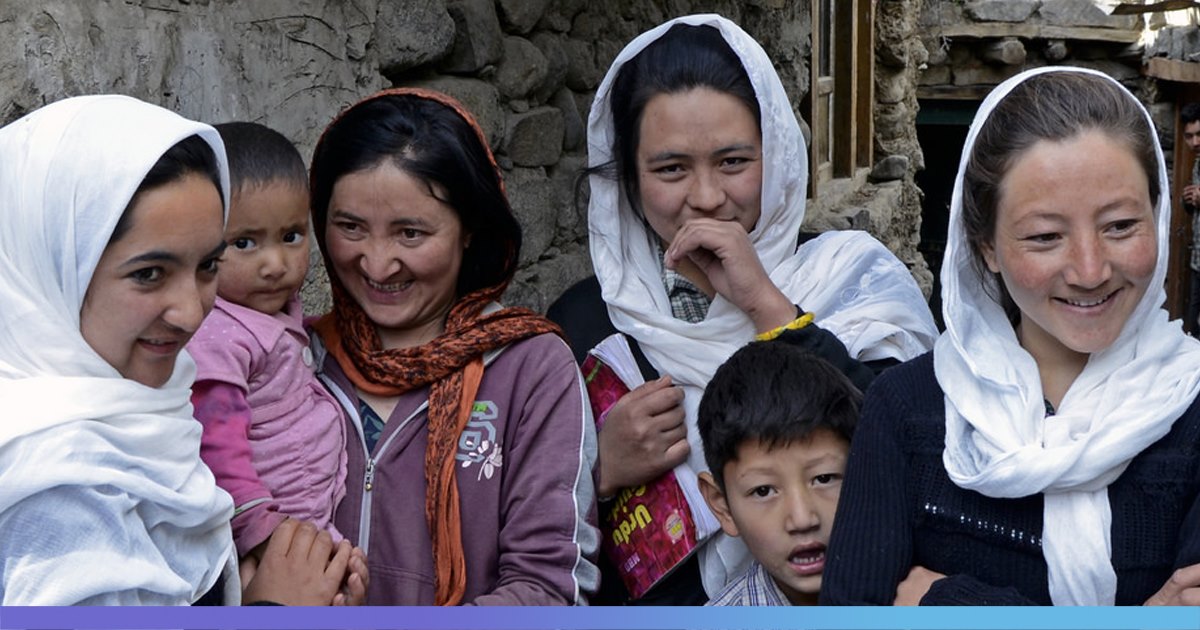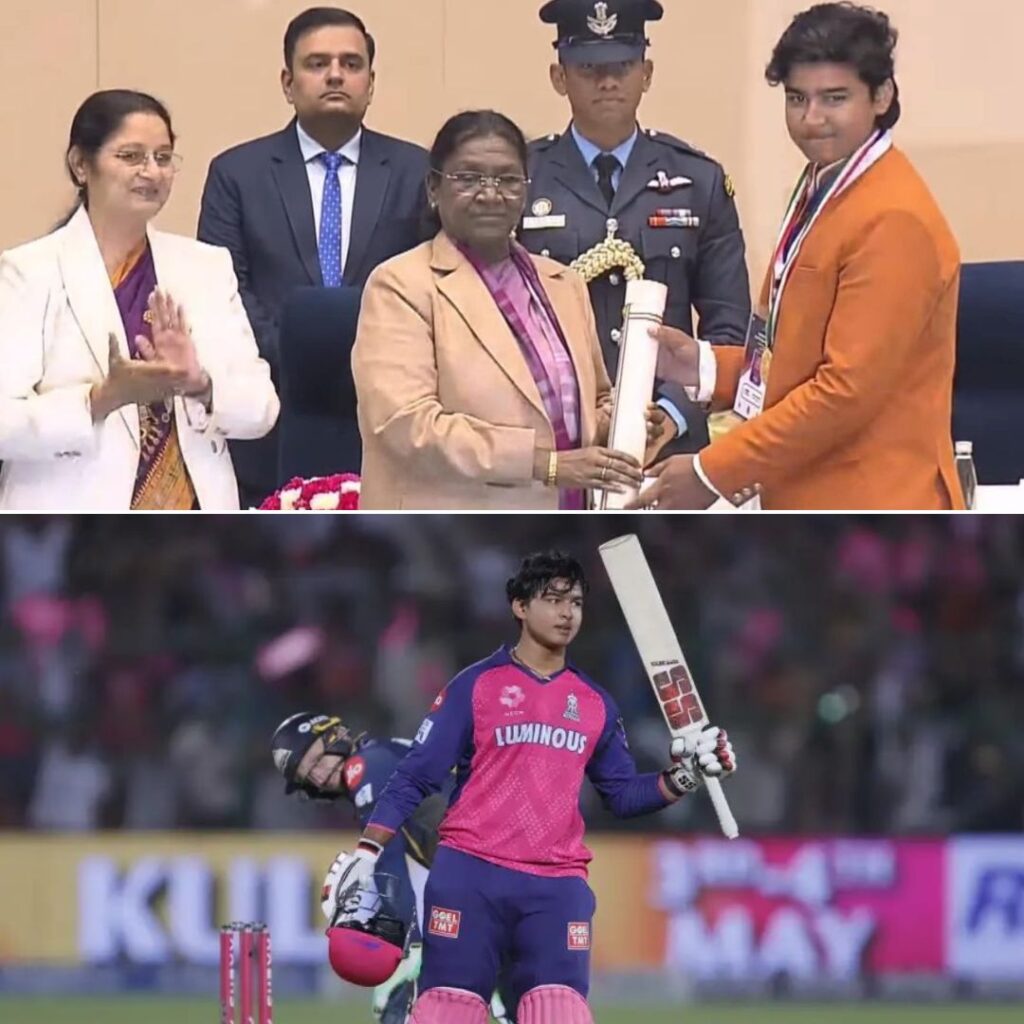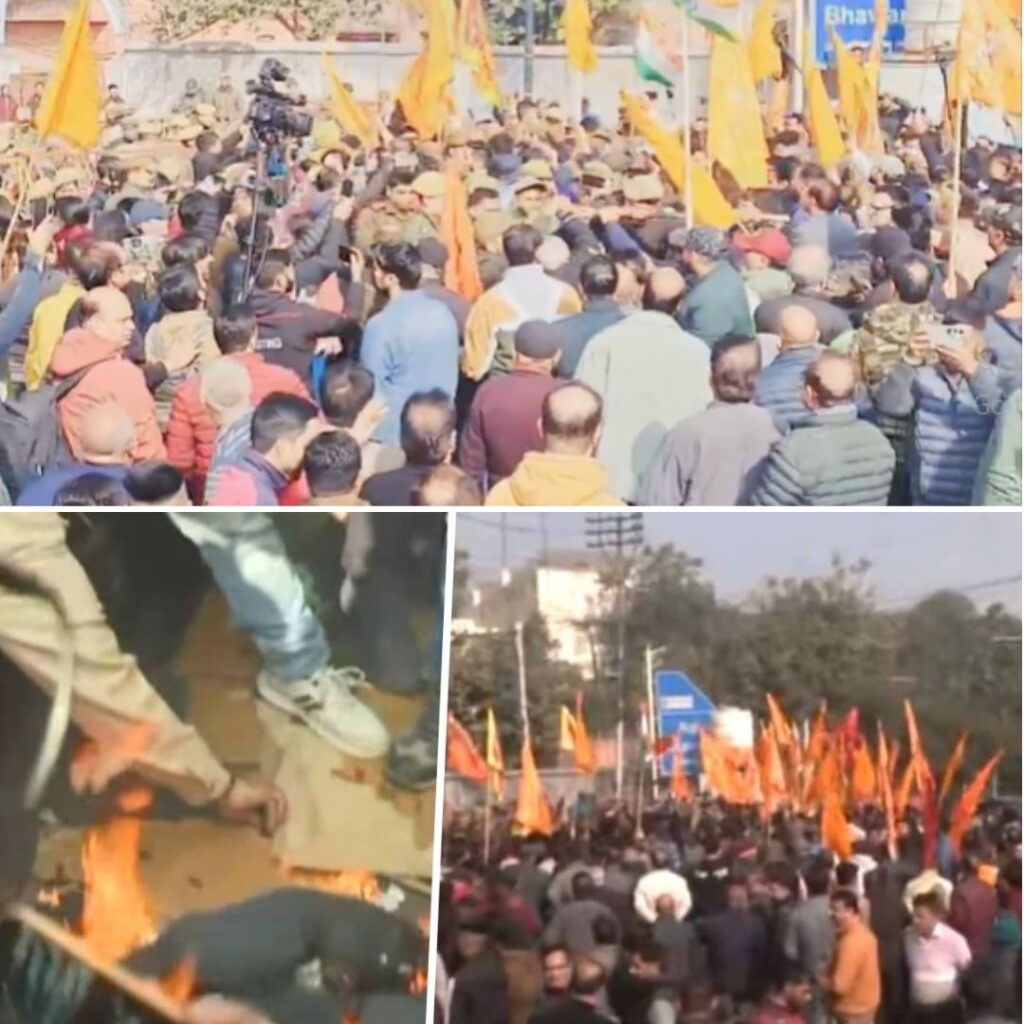The Jammu and Kashmir union, a state before October 31, is always in the news for its civil unrest, creating a certain perception about the people living here in the minds of their fellow Indians. What has led to the development of such a notion against the people living in the union territory? Why are the people here, especially of Kashmir, being portrayed as hostile and traitorous?
Pranav and Vaidehi, students of IIT Jammu, interviewed Brigadier Dr Vijay Sagar Dheeman to find answers to these questions. Brig Dheeman works towards empowering the youth who suffer from inadequacies of exposure to the contemporary world. He holds his doctorate in International affairs and Indo-Pak Relations.

To an outsider how will you define Jammu and Kashmir?
J&K is a very pious land. This land has lots of heritage, diversity of various cultures, religions and a wonderful place to live in. It is called the Switzerland of India. I have seen the infrastructure and its potential. If the conflict is forgotten, it would be better than the central Europe tourist spots. There are enough resources of various kinds, water, forests, minerals. There is so much to offer.

You are very vocal about the crisis prevalent in the conflict-torn region of Kashmir. Can you comment on the situation?
I’ve been watching as to what exactly is happening. How can there be a conflict between two sane minded right-thinking adults? It has to be resolved but it wasn’t happening.
In my independent and frank opinion, there was strive by certain people by design for J&K creation. But now a lot of people have found that their shop is running because of this. Politicians, people across the border in Pakistan, their military, our journalists, our local population, everybody has a stake in it. They do not want this problem to be sorted out. This problem is self-created and self-perpetuated.
Unfortunately, it is the common masses who are suffering. The worst sufferers are students. If you start using children of poor families as a tool for your strategy, then that means there is some sinister design.
Who is creating the propaganda? Who is creating the strive, the conflict? Who should be pointed fingers at?
British mainly and that was the design at the time of partition. The people thereafter who came, the politicians and other stakeholders have joined in. There is so much money flowing in this part of the world. It is nobody’s business that it is being distributed among these stakeholders by themselves.
What, in your opinion, do the civilians of Kashmir hope for? What are their subaltern voices and demands?
There are misgivings about the Kashmiri people. They are not Pakistanis. When fellow Indians call them Pakistanis, everything else is some kind of a reaction. I don’t deny, there are arguments on both sides, but still my message to the people, please don’t treat them as outsiders. They are part of your country, as loyal as you are.

Do you think there is someone who has been able to genuinely represent the Kashmiris?
Unfortunately, we haven’t had a history of fair and free elections ever. Every election had a sinister agenda being imposed on the people of Kashmir from Delhi. One of the major problems of Kashmiris is that they lack leadership. Whatever small snippets of leadership have been seen, they were all marred by some personal gratification and ambition. Nobody was ever interested genuinely in the masses.
Why is the trust quotient so bleak when it comes to the relationship between the military and locals of some region?
The military is there so that there is no untoward incident, there is peace. Nobody takes the law into their own hands because the police and the local administration have failed. Now if some misguided chap, do say, some terrorist activity, the military has to react. Now when the military reacts, it reacts with force. And force is collateral damage. Even if you are very patriotic and you suffer damage in this, you will also get against them. This is all psychological. This is a vicious circle and it’s very hard to get out of it.
If this problem is to be solved, it should be addressed at the ground reality and taken care of psychologically.
How do you see the current regime in the center?
I will say if a person is giving you the right direction, please take it, he may be from any party. Somebody might say this is not the right direction, this was a wrong step. So you analyze it. If you see Dr Manmohan Singh’s CV, it’s the best in the world. He is the man who started all the economic things for us. But he didn’t perform as a Prime Minister. I don’t agree when people say he was under someone’s influence. When it came to India going into the nuclear suppliers’ group, because of which India is at some stage today, he said I am resigning if you don’t pass this bill in the parliament. He should have done this more often, because of his potential. I am not against him but I have a bit of criticism against him.
Is India intolerant or is the power at the helm very unscrupulous?
India is the most tolerant country in the world. The amount of freedom you get in India, you won’t get anywhere. It is just the vested interest, with the help of the media, putting up something, wherein their narrative has to recruit. And then with the help of the advent of social media and the IT professionals, there is a lot of fudging being done, a lot of cut pasting, photoshopping is possible.
Do you think all the riots and all that is happening is because of this?
It’s the inflammation of passions that have no logic and no life. A movie comes Padmavati, and riots happened. You have not seen the movie, how can you protest against it. Now it is released, it is running all over, everyone is quiet about it. Just because of a highlighted incident of a high-headed somebody we should not make perception.
As a powerful crusader of the youth, what is the message that you have for the young minds of the country related to issues plaguing this nation?
Addressing the youth, everything in this world is perception management. Everyone in this world has their own agenda. Some intellectuals try to derive their own mileage and in the process misguide the youth. Youth is a power, a force to be reckoned with and can bring a change. My message to the youth is that please start using your brain. Whenever someone tells you something, before blindly agreeing to it, use your own logic and don’t fall to the sinister designs of anybody.
What do you think about who should be their icon?
Icon has to be a teacher. The best way to destroy a country is to destroy its educational system, and that is what is happening in India. 70 years of independence. We have Indian Administrative Services and several others, why don’t we have Indian Educational Services. India used to be a seat of learning. Indian GDP used to be 33%, and plummeted to 4% because they burnt all our libraries, they finished our Vedic literature. That’s how they finished everything.
So what must they do to overcome these problems?
Revolution !!!
What do you think is the bone of contention between India and Pakistan. Your comment on these infiltrations, ceasefire violation.
There is no bone of contention. They are very good people. The bone of contention is with the one who is in power, he says Pakistan is wrong and you come together to fight. They are mobilising the masses by giving this reason only.
Now for infiltrations, cross border firing, it is a business. Pakistan’s army has to keep its business.
You talked about all the misconceptions and stereotypes about J&K. Any idea or proposal that we as students can adopt to change this?
Please come and integrate with the guys of J&K in a very meaningful manner. Tell them you guys are misguided. What’s your future. You are being radicalized in the name of religion wrongly. Integrate with the rest of the country and see what all benefits there are for you.
The economy got opened up. India has gone way ahead and unfortunately, Kashmir has not moved. A high percentage of youth has not crossed the Banihal tunnel as yet. Why? Because they have been fed wrong information about India and similarly Indians are fed wrong information about them.
All the money and beneficiaries that flows into J&K from various regions, they are not benefitting. Those with money, power, influence don’t want others to come up. Keep them in the dark. Make them hold stones and send them to become militants.
Kashmiri girls, some 30-40 years back all used to move freely. Today they are supposed to be in hijab. Why? Because there is a religious dictate from across the border. If you feel religious, all good. I’m not against it. But I am just asking about cultural change.
This is where you are being left behind. And then also show them the reality of what’s happening in Pakistan, what’s happening in China. It is not rosy.











